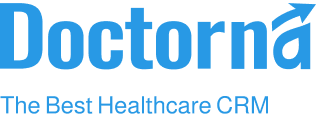Data privacy is no longer just an operational requirement—it’s a legal obligation. As healthcare organizations adopt digital platforms and CRM (Customer Relationship Management) systems to manage patient relationships, the need for robust data protection has become more critical than ever. This is especially true in regions governed by strict regulatory standards like the Dubai Health Authority (DHA) and the U.S. Health Insurance Portability and Accountability Act (HIPAA). Compliance with both DHA and HIPAA standards in healthcare CRM ensures that healthcare providers safeguard sensitive patient information while maintaining trust and credibility.
Whether a clinic is operating in Dubai, the U.S., or managing cross-border data exchanges, adhering to these standards is essential for legal, ethical, and operational reasons. This blog explores what DHA and HIPAA compliance means, why it’s necessary, and how CRM platforms are transforming the future of secure healthcare communication.
Understanding DHA and HIPAA Compliance
What is DHA Compliance?
The Dubai Health Authority regulates healthcare practices within Dubai, establishing guidelines for data privacy, patient rights, and digital record-keeping. DHA law requires:
- Secure storage and access to electronic health records (EHRs)
- Proper authorization for data sharing
- Regular audits and security controls
- Patient consent and confidentiality measures
Healthcare CRM systems operating in Dubai must comply with DHA health data standards to avoid penalties and operational restrictions.
What is HIPAA Compliance?
HIPAA is a U.S. federal law designed to protect patient health information (PHI). It mandates healthcare providers, insurers, and their partners to follow strict guidelines related to:
- Data encryption and access controls
- Secure data transmission
- Audit logs and monitoring
- Breach notifications
- Patient rights management
Non-compliance can result in heavy fines, legal actions, and loss of reputation.
Why Compliance Matters in Healthcare CRM
Healthcare CRM software processes and stores highly sensitive patient information like medical history, personal identifiers, insurance details, appointment logs, and communication records. Without proper compliance, this data becomes vulnerable to breaches and misuse.
Key reasons compliance is critical:
- Protects patient privacy and builds trust
- Prevents costly penalties and legal consequences
- Ensures secure workflows across different departments
- Supports safe digital transformation in healthcare
- Enhances credibility with patients, partners, and regulators
Most importantly, compliance standards ensure that communication between healthcare providers and patients remains secure at every touchpoint.
How Healthcare CRM Supports DHA and HIPAA Compliance
1. Data Encryption and Role-Based Access
CRM systems encrypt data both in transit and at rest, ensuring only authorized personnel can access sensitive information. Role-based access prevents unauthorized internal or external access.
2. Audit Trails and Logging
HIPAA requires detailed logs of who accessed patient data and when. Modern CRM platforms automatically track activities, creating a transparent audit trail that helps compliance teams monitor usage.
3. Secure Cloud Storage and Hosting
Leading healthcare CRM solutions utilize secure cloud environments with advanced firewalls, intrusion detection, backups, and disaster recovery. DHA mandates local data storage for health records in Dubai, which CRM vendors accommodate through compliant infrastructure.
4. Automated Consent Management
Patients must approve how their data is stored and shared. CRM systems record digital consent, track modifications, and document approval history—keeping providers aligned with regulatory requirements.
5. Integration with EHR and Insurance Platforms
A compliant CRM integrates securely with EHRs, PMS, insurance portals, and telemedicine apps—ensuring data transfer happens through secure APIs without compromising privacy.
6. Breach Notification and Incident Management
HIPAA requires prompt reporting in case of data breaches. CRM systems include alert mechanisms and compliance workflows to ensure rapid response, documentation, and notification.
Challenges Organizations Face with DHA and HIPAA Compliance
Even with technology, compliance can be difficult due to:
- Lack of internal expertise
- Complex integration issues
- Frequent regulatory updates
- Human errors and weak user training
- Multi-location data sharing
Healthcare providers must invest in training, auditing, and selecting the right CRM solution to ensure long-term compliance.
Choosing a DHA and HIPAA-Compliant Healthcare CRM
When evaluating CRM solutions, healthcare organizations should look for:
- End-to-end data encryption
- Localized support for DHA regulations
- HIPAA Business Associate Agreement (BAA) availability
- Cloud security certifications (ISO, SOC, GDPR)
- Customizable access permission controls
- Multi-factor authentication and user identity verification
- Compliance reporting and built-in audit features
A CRM that is both DHA and HIPAA compliant brings peace of mind while enabling digital growth and operational efficiency.
Benefits of a Compliant Healthcare CRM
- Enhanced patient confidence
- Reduced legal risks and fines
- Streamlined workflows and secure data sharing
- Increased efficiency and automation
- Improved provider-patient communication
- Preparedness for regulatory audits

Conclusion
Compliance with DHA and HIPAA standards in healthcare CRM is not just a box to check—it is a foundation for safe digital healthcare delivery. As the industry shifts toward cloud-based systems, telehealth, AI-driven care, and data interoperability, regulatory compliance becomes the backbone of every digital transformation effort.
Healthcare providers who choose CRM solutions built with compliance at the core gain a dual advantage: improved patient relationships and guaranteed data security. In a time where cyber threats and privacy concerns are rising, compliant CRM systems are essential for building trust, enabling innovation, and ensuring long-term success in modern healthcare.







